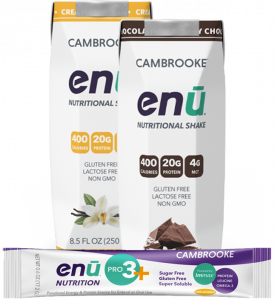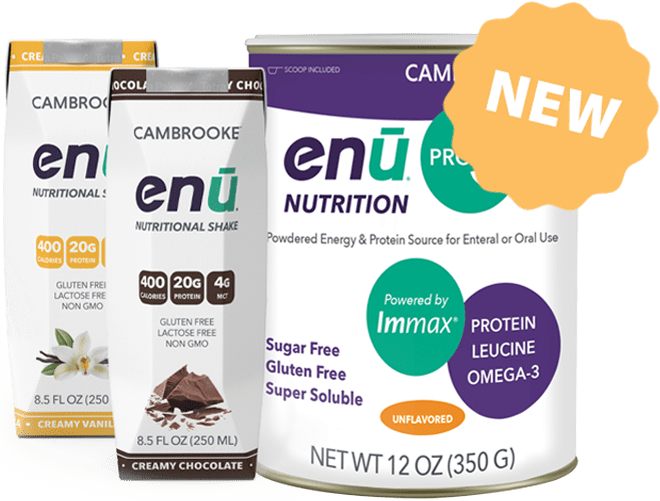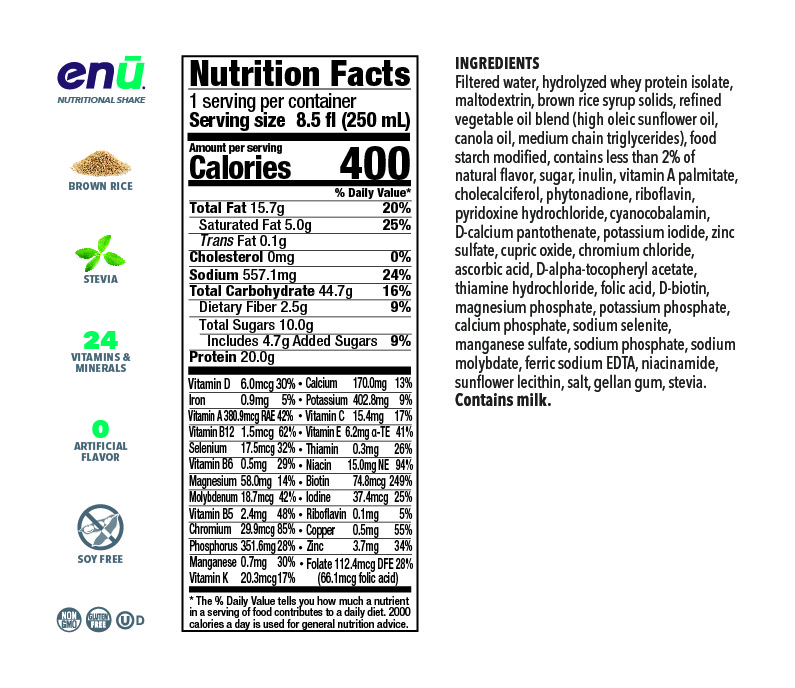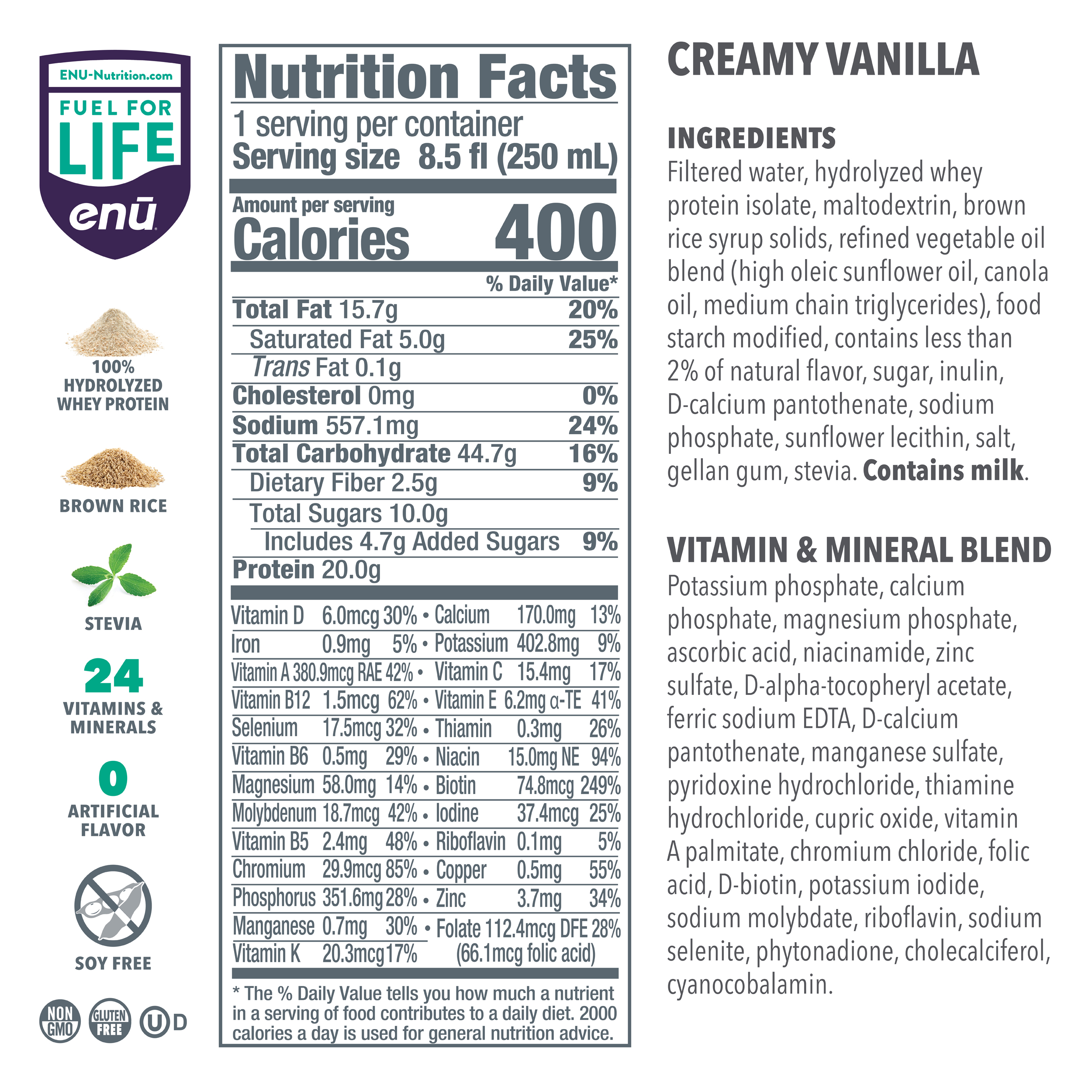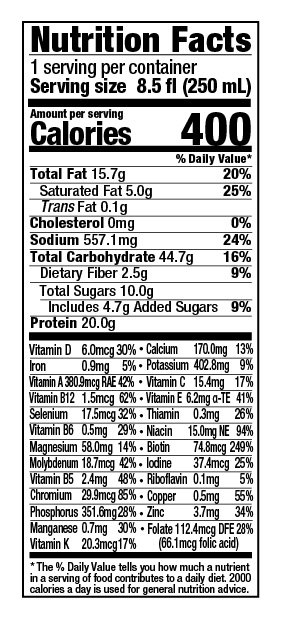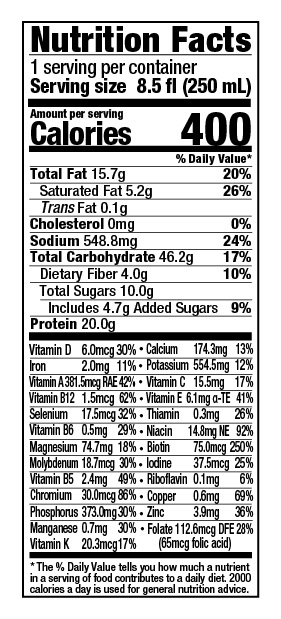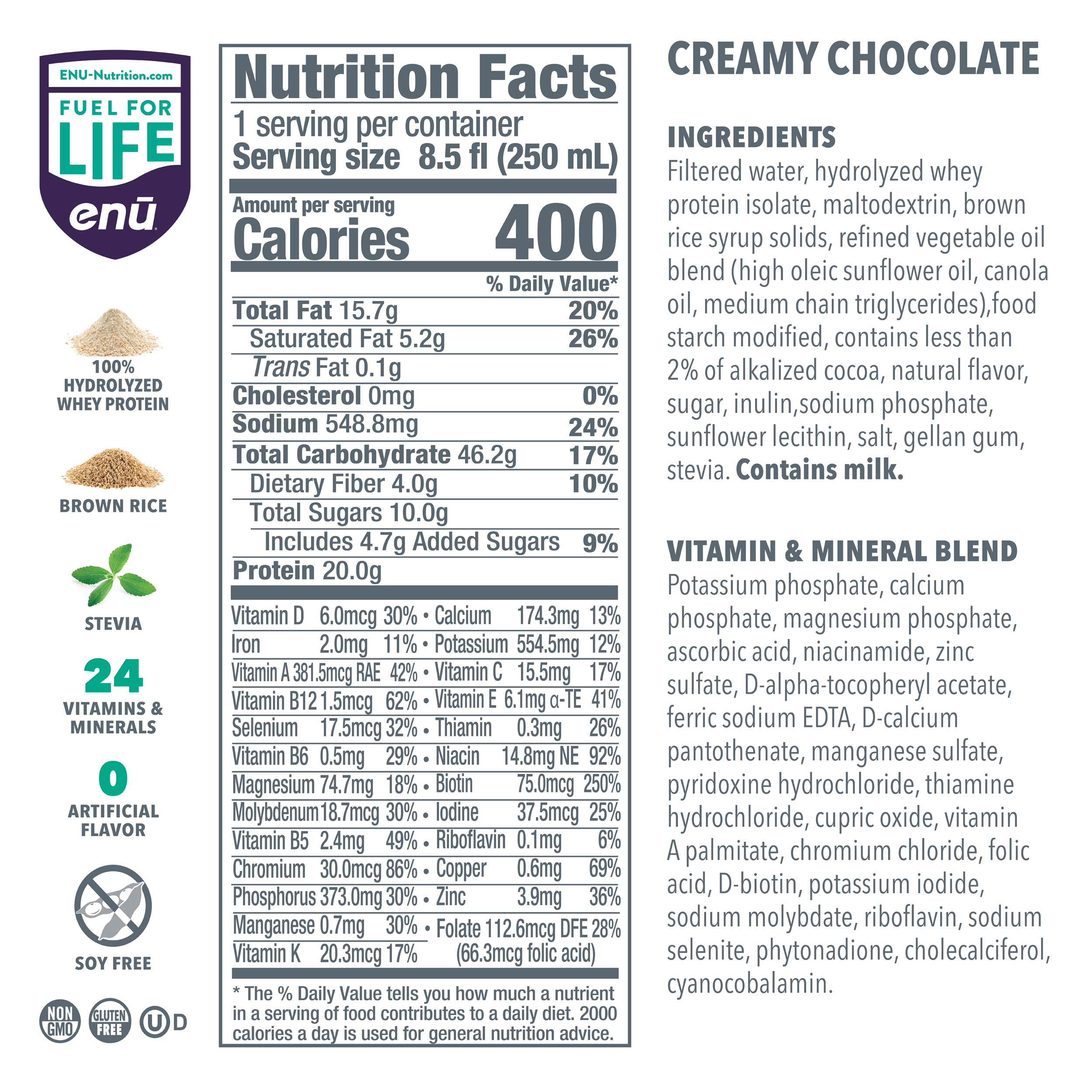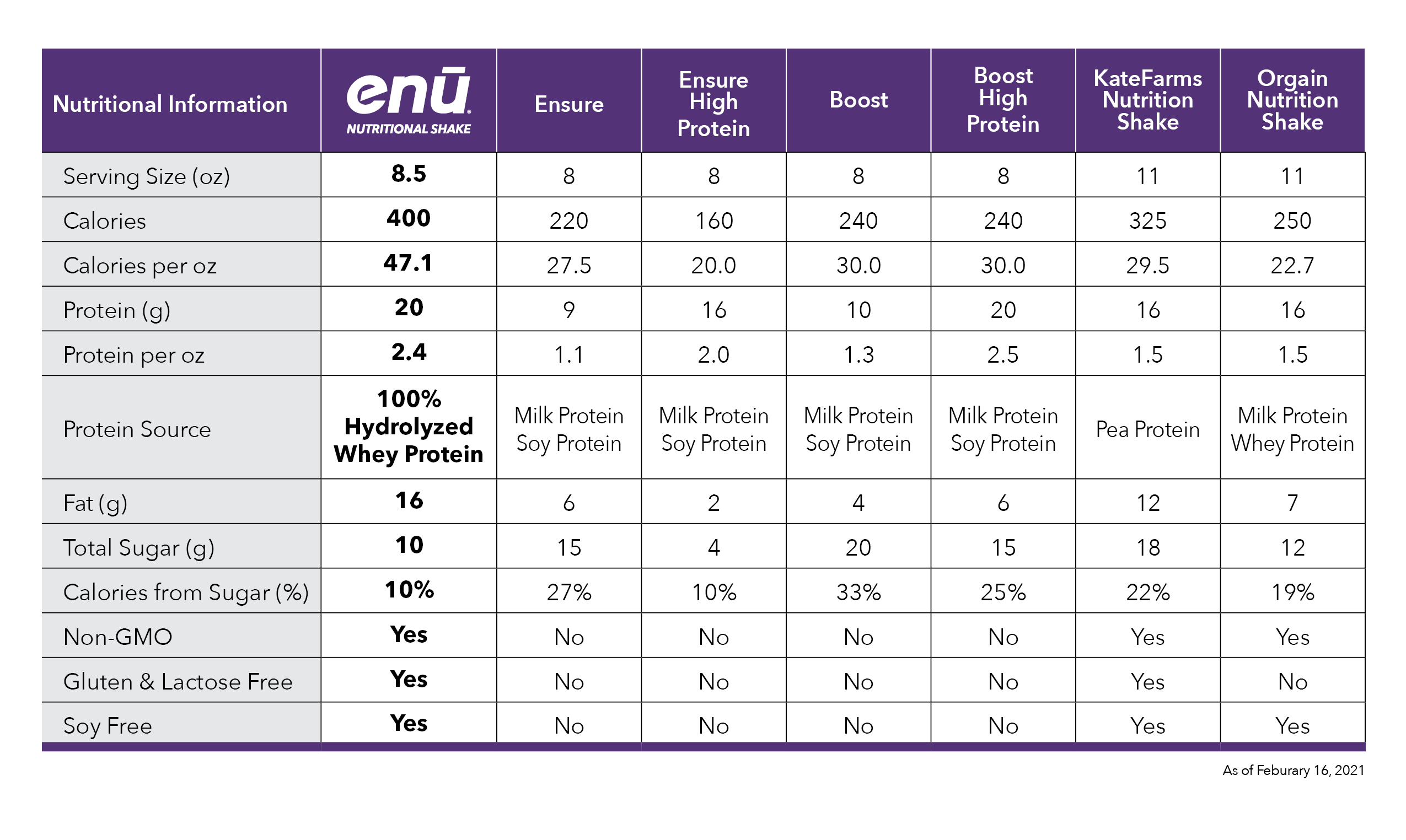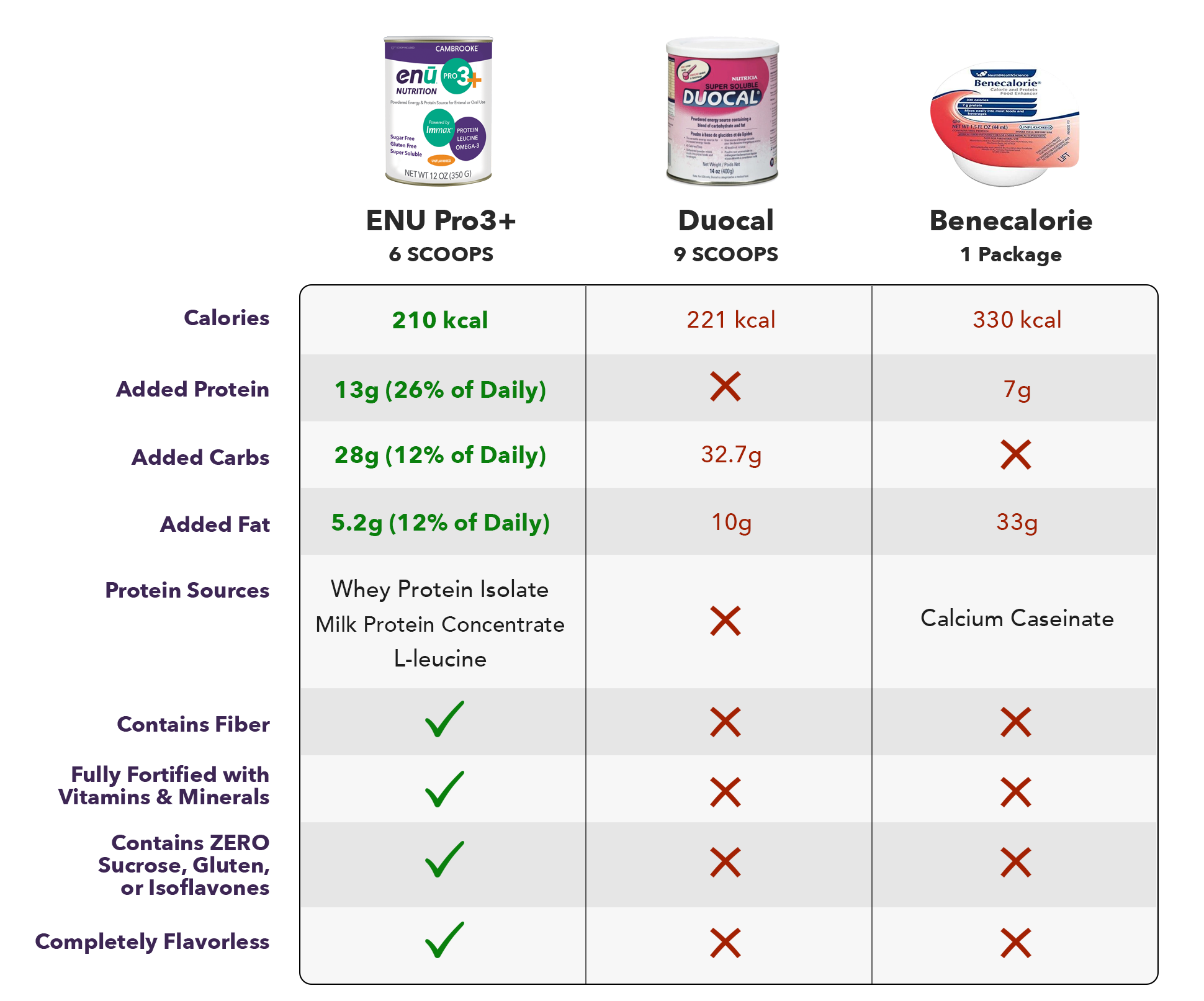
Get a FREE
ENU Intro Pack*
*Just Pay $2.00 Shipping

Why Do I Eat a Lot But Don’t Gain Weight?
As easy as it can sometimes seem to those looking to shed pounds, gaining weight can actually be a tricky process for many people. That’s because those who want to put on a few pounds face some of the same hurdles as those looking to shed them: biology, habits, and environment. However, even if you consistently eat lots of food but don’t gain weight, there are some things you can do to help the weight gain process along without too much added effort, though it might require you to understand the issue. First, it’s important to ask the question, “Why do I eat a lot but don’t gain weight?” To learn more, keep reading as ENU, the makers of healthy meal replacement shakes for weight gain, discuss this topic at length.
Why You Don’t Gain Weight After Eating a Lot
Because so many different factors can influence how a person eats and how their body processes those calories and nutrients, it can be tough to identify why you aren’t gaining weight despite your best efforts. Below, we’ll discuss some of the factors that could be the reason why you don’t gain weight after eating a lot.
Habits and Lifestyle
The first element to consider is the one over which you have the most control: your habits. A person’s eating habits, for example, can play a big role in whether they are able to gain weight. Even if you eat a lot of food in one sitting, you might not gain much if that’s your only meal of the day; conversely, eating often might not have an effect on your weight if you eat small portions or foods that don’t offer many calories. If you want to put on some pounds but are struggling to do so, consider your eating habits as a possible reason why.
The other half of this equation is a person’s exercise habits, since those who frequently engage in physical activity tend to burn far more calories than those who lead sedentary lives. If you want to gain weight but work out often, keep in mind that you’ll not only burn more calories when exercising but also when you’re at rest; keep this in mind when planning your calorie intake.
Genetics
Among the many traits passed down from parent to child are elements that can impact a person’s ability to gain weight. One of these factors is your basal metabolic rate (BMR), a measure of your body’s energy expenditure when at rest. While you can sometimes adjust this number slightly through lifestyle changes, such as adopting an exercise routine, there is generally very little that you can do to alter your metabolism.
Another way that genes can affect your weight is by passing along a mutation or defect. In some people, these defects can cause disorders of the digestive system, such as celiac disease or cystic fibrosis. Left untreated, these illnesses can cause an issue called malabsorption, which is an inability to take in and use the nutrients and calories you consume. If you’ve noticed partially digested food matter or an oily sheen in the water when you move your bowels, you might have this problem; talk to your doctor to learn more.
How to Gain Weight in a Healthy Way
For many people, gaining weight is a matter of extreme importance because a lack of adequate fat and muscle can cause serious health problems. Those who are underweight might suffer from osteoporosis, a weakness of the bones, or they could experience fertility issues. Whatever your reason for wanting to gain weight, it’s crucial that you do so in a healthy, measured way. Remember that more weight doesn’t necessarily equal improved health, even if you are underweight.
One of the best ways to ensure healthy weight gain is to balance an increase in body fat with an increase in muscle mass. More muscle will not only make you stronger, but it can also improve cardiovascular health, promote mental health, and strengthen bones, among other benefits. To help with muscle growth, make sure you’re consuming about 1 gram of protein per pound of overall body weight each day; if you want to kill two birds with one stone, look for foods that are high in both calories and protein, such as the following:
- Whole-fat dairy products, such as milk, cheese, yogurt, and ice cream
- Eggs
- Nuts and nut butters, such as peanut butter
- Red meat, especially fattier cuts
Incorporating these foods into your diet will aid your weight gain efforts, provided you get enough calories overall. A good rule of thumb is to eat or drink around 500 more calories per day than your body burns; this should provide a rate of weight gain of about one pound per week. It may be tempting to exceed this rate, but unless otherwise instructed by a doctor, try to avoid putting on much more than this because it increases your odds of gaining unhealthy belly fat, and weight gained too quickly tends to also be lost just as fast. When adjusting your weight – either up or down – it’s important to be patient and consistent in your efforts.
Balanced Meal Replacement Shakes for Helping with Weight Gain
Many people who have a hard time gaining weight find success by drinking their calories instead of eating them, which tends to make people feel less full. A meal replacement shake from ENU would be an excellent choice for this role, since each shake provides 400 calories and 20 grams of protein from real food ingredients. Learn more about all ENU’s products by visiting us online or calling (855) 266-6733 today.

